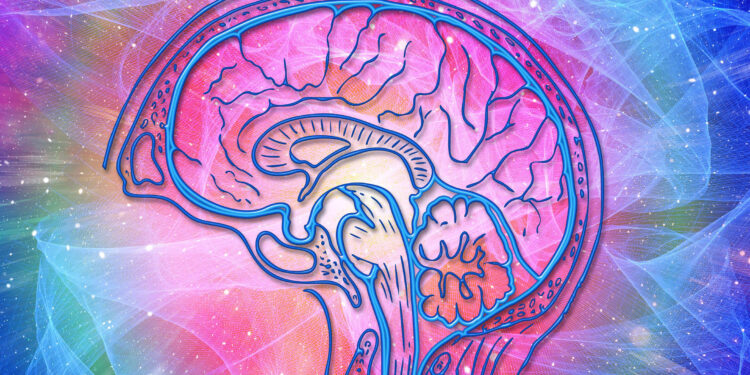In recent years, there has been a growing interest in the potential therapeutic and cognitive-enhancing effects of microdosing psilocybin, a naturally occurring compound found in certain species of mushrooms. While psilocybin has long been associated with its hallucinogenic properties, microdosing involves consuming sub-perceptual doses, which are too low to induce a full-blown psychedelic experience. Instead, proponents suggest that microdosing may offer a range of subtle benefits for mental well-being, creativity, and focus. In this article, we’ll delve into the emerging field of microdosing psilocybin and explore the potential advantages it may hold.
1. The Science Behind Microdosing Psilocybin
Microdosing psilocybin is grounded in the idea that consuming very small amounts of the compound can influence neurochemical pathways in the brain without causing intense alterations in perception. Psilocybin interacts with the serotonin receptors in the brain, which play a crucial role in mood regulation, cognition, and emotional processing. A study published in the journal “Neuropsychopharmacology” demonstrated that even at low doses, psilocybin can modulate neural connectivity and potentially enhance cognitive flexibility[^1^].
2. Cognitive Enhancement and Focus
One of the touted benefits of microdosing psilocybin is its potential to enhance cognitive function. Proponents argue that microdosing may lead to improved focus, increased creativity, and enhanced problem-solving abilities. A study published in “Frontiers in Psychology” reported that microdosing participants experienced cognitive improvements, particularly in convergent and divergent thinking[^2^]. While further research is needed, these initial findings are promising and warrant further investigation into the cognitive-enhancing properties of microdosing.
3. Emotional Well-being and Mood Enhancement
Another area of interest is microdosing’s impact on emotional well-being. Research suggests that psilocybin may have antidepressant and anxiolytic effects, and proponents of microdosing believe that these benefits could extend to microdosing as well. A study published in the “Journal of Psychoactive Drugs” reported that microdosing participants experienced increased emotional well-being and reduced depressive and anxious symptoms[^3^]. However, it’s important to note that individual responses to microdosing can vary widely, and not everyone may experience the same positive effects.
4. Creativity and Problem-Solving
Creativity is a complex cognitive process that involves thinking outside the box and making novel connections. Some individuals have reported that microdosing psilocybin enhances their creative thinking and problem-solving abilities. A study published in “Psychopharmacology” explored the impact of microdosing on creative thinking and found that participants exhibited increased creativity in tasks that required a high degree of cognitive flexibility[^4^].
5. The Importance of Responsible Use and Further Research
While the potential benefits of microdosing psilocybin are intriguing, it’s crucial to emphasize responsible use and the need for further research. The long-term effects, optimal dosing protocols, and potential risks of microdosing are still not fully understood. Additionally, legal and ethical considerations surrounding psilocybin use must be taken into account. It’s recommended that individuals interested in microdosing consult with medical professionals and follow local regulations.
Microdosing psilocybin presents a fascinating area of exploration at the intersection of cognitive enhancement and emotional well-being. While anecdotal reports and preliminary studies suggest potential benefits, a comprehensive understanding of microdosing’s effects requires further rigorous scientific research. As attitudes towards psychedelic compounds evolve, it’s possible that microdosing could contribute to new insights into brain function and mental health. As we eagerly await more comprehensive research, it’s important to approach microdosing with caution, respect for the compound, and a commitment to responsible and informed use.
References:
1. Carhart-Harris, R. L., Bolstridge, M., Rucker, J., Day, C. M., Erritzoe, D., Kaelen, M., … & Nutt, D. J. (2016). Psilocybin with psychological support for treatment-resistant depression: an open-label feasibility study. *The Lancet Psychiatry, 3*(7), 619-627.
2. Prochazkova, L., Lippelt, D. P., Colzato, L. S., Kuchar, M., & Sjoerds, Z. (2018). Exploring the effect of microdosing psychedelics on creativity in an open-label natural setting. *Psychopharmacology, 235*(12), 3401-3413.
3. Anderson, T., Petranker, R., Christopher, A. N., Rosenbaum, D., Weissman, C. R., Dinh-Williams, L. A., … & Hapke, E. (2019). Microdosing psychedelics: personality, mental health, and creativity differences in microdosers. *Psychopharmacology, 236*(2), 731-740.
4. Hutten, N. R., Mason, N. L., Dolder, P. C., & Kuypers, K. P. (2019). Motives and side-effects of microdosing with psychedelics among users. *International Journal of Neuropsychopharmacology, 22*(7), 426-434.
Please note that while these references provide insights into the topic of microdosing psilocybin, they may not specifically cover every aspect of the article. The information presented here is for informational purposes only and is not a substitute for professional medical advice. Always consult with a qualified healthcare provider before considering any form of substance use.

